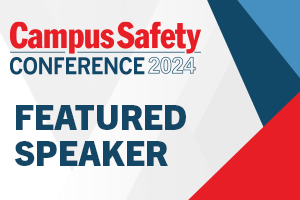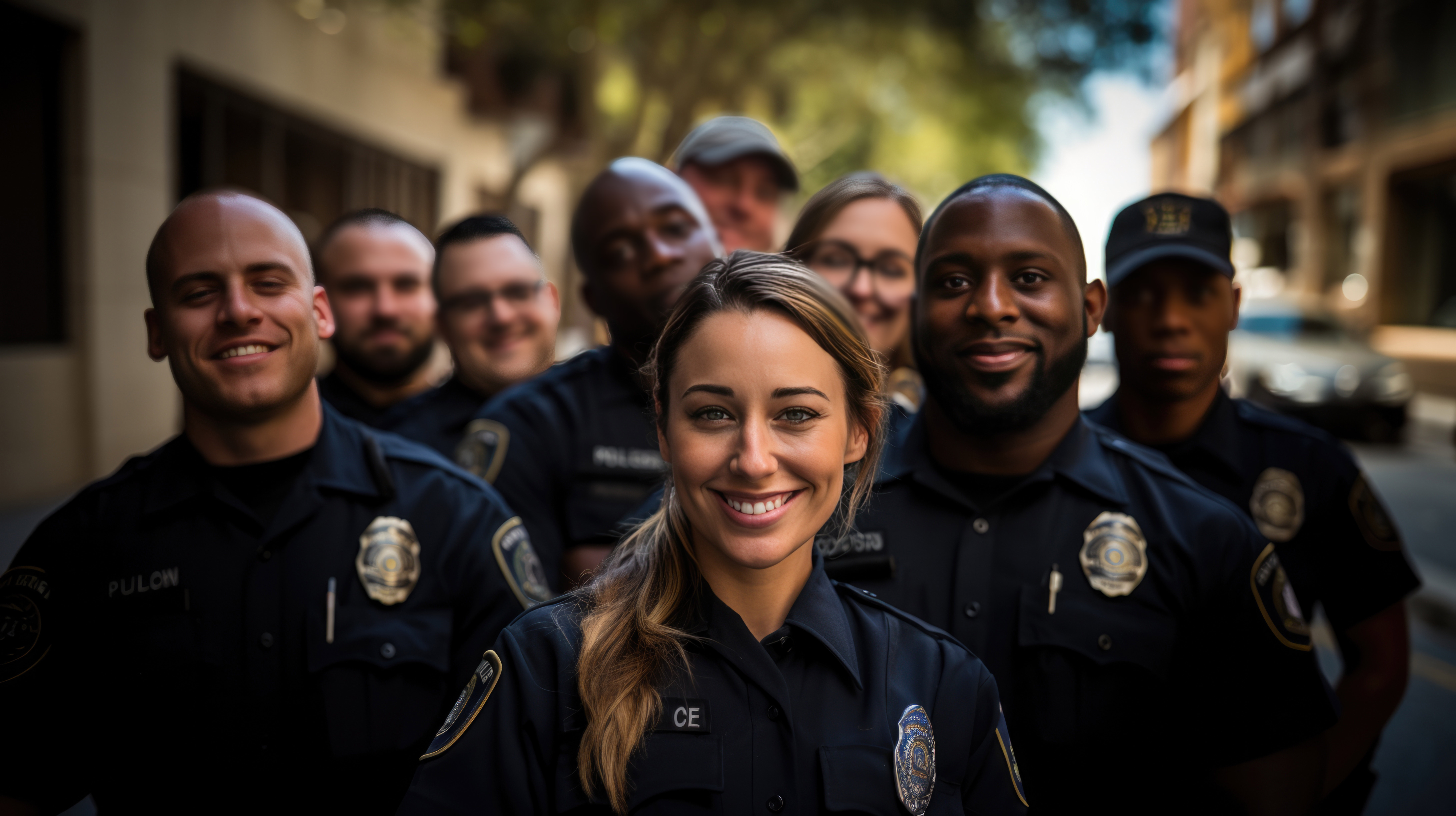“I’ve learned that people will forget what you said, people will forget what you did, but people will never forget how you made them feel.” – Maya Angelou
Across the country, creating safe and secure learning environments is paramount for colleges and universities. It’s important to remember that safety is not just about crime statistics. It is the perception of feeling safe. On college and university campuses, campus police and security have the duty to provide that safety. Everyday interactions, how law enforcement speaks to community members during “routine” interactions, is where trust is built.
The news and social media are over-flowing with examples of law enforcement officers involved in uses of force and sensational encounters. While these are all too often a part of the job, they are not the only way law enforcement is judged. Most people understand that force occurs within some encounters, and law enforcement is often applauded for their restraint and de-escalation during crisis incidents.
But what about the vast majority of law enforcements’ contacts with their communities? Most interactions and calls for service are not a crisis call and not escalated. These are the day-to-day contacts where the community observes and learns what their law enforcement officers really think. Non-crisis encounters, also known as pre-escalation, involve interactions during other police activities, which are the vast majority of law enforcement’s encounters with their community. Traffic stops, domestic disturbances, calls for past crimes such as burglary, larceny, and vandalism, as well as the frequent incidental contacts in public settings such as restaurants and convenience stores are where most interactions occur.
Officers Need Strong, Effective Communication Skills
“Have you ever had an encounter with law enforcement before being sworn? Or after being sworn and your identity wasn’t known to the officer?”
These questions were posed to a group of chiefs and sheriffs. Sadly, the large majority indicated they did not like how they were treated by the officer during the encounter, and some were still angry years later.
A recent review of police accountability board reports paints a concerning picture that is in line with the chief’s and sheriffs’ reactions. The reports revealed that a significant number of citizen complaints center not on a use of force or false arrest, but around discourtesy, language, and how people felt they were treated during their interactions. This issue was further brought to light by a 2023 study from Virginia Tech. The study reinforces this concern, highlighting that an officer’s initial approach and language set the tone for the entire encounter. Sadly, many of the highly publicized negative law enforcement encounters actually started with the officer escalating the situation unintentionally.
This underscores the critical need for campus officers to possess strong communication skills to navigate situations constructively and respectfully.
Traditionally, law enforcement training focuses on tactics, firearms, and de-escalation. However, a gap exists in pre-escalation approaches. Programs like “Socially Smart Officer” are stepping in to fill this void, aiming to rebuild trust between campus law enforcement and the students and staff they serve.
CSC 2024 to Offer Training on Improving Officer Interactions

Registration is now open for the 2024 Campus Safety Conference, taking place in Atlanta, Georgia, July 8-10. CLICK HERE for more information and to register, or visit CampusSafetyConference.com.
At this summer’s Campus Safety Conference, taking place July 8-10 at the Omni Atlanta Hotel at Centennial Park in Atlanta, Ga., Dave Minionis, a leadership and organizational effectiveness consultant with a PhD in Industrial/Organizational Psychology and Dan Dusseau, a retired chief of police with more than three decades of experience in both municipal and campus law enforcement, will present “The Socially Smart Officer Breakthrough,” which is an interactive platform where police officers can hone essential skills, including:
- Self-Awareness: Recognizing personal biases and emotional triggers to ensure clear judgment.
- Balanced Communication: Emphasizing respect, awareness, and effective communication in all interactions.
- Empathy and Trust Building: Cultivating understanding and fostering trust-based relationships with students, faculty, and staff.
- Situational Adaptability: Equipping officers to respond effectively to diverse situations and individuals on campus while maintaining composure.
- Building a Safe and Inclusive Campus Community
Ensuring a safe and inclusive campus environment requires more than just technical skills. Everyday interactions, both routine and high-pressure, are crucial in building trust and fostering a sense of security among students, faculty, and staff. Proficiency in driving and marksmanship, while important, is no longer enough. The “Socially Smart Officer” program tackles this challenge by nurturing skills that promote community trust and cooperation, within the unique environment of a college campus.
Words Can Have More Power Than a Gun
Many campus law enforcement agencies lack training in interpersonal skills for their officers. Arguably, an officer’s words can be a more powerful tool for community building than any firearm. Poor communication creates tension and undermines a sense of safety on campus, regardless of an officer’s technical skills. Pre-escalation training, which focuses on communication and techniques before a situation reaches a critical point, is vital for building trust and safety within the campus community.
To foster positive interactions and promote a safe learning environment, campus officers need to practice crucial verbal and non-verbal communication techniques. College and university administrations must prioritize training their law enforcement staff to be “Socially Smart Officers.” Balanced communication is essential for officer safety, effectiveness, and, most importantly, building trust and a sense of security within the campus community.
Understanding Citizen Perceptions is Key
Since safety is a feeling, a core component of effective communication for campus safety officers is understanding what is really being said and seen. By honing their ability to interpret verbal and nonverbal cues, officers can tailor their responses to address the underlying concerns that contribute to feelings of insecurity. This not only improves communication but also fosters a more positive perception of campus safety among students, faculty, and staff. Ultimately, this leads to a stronger sense of trust and cooperation between law enforcement and the campus community.
The “Socially Smart Officer” program equips officers with the skills they need to bridge this gap. Through interactive learning, participants develop skills in three core areas:
- Attitude: Maintaining a professional and respectful demeanor.
- Awareness: Reading situations and people accurately, with a heightened sensitivity to the specific dynamics of a campus environment.
- Ability: Employing effective communication techniques verbally and non-verbally, fostering a sense of safety and inclusion.
By mastering these elements, campus officers unlock their potential to be effective communicators and bridge the gap between law enforcement and the communities they serve. The “Socially Smart Officer” program offers a path towards a future of trust, cooperation, and a safer learning environment for all.













